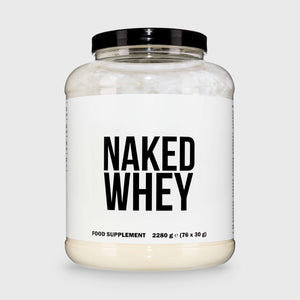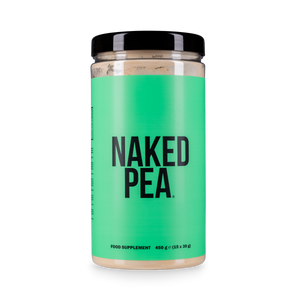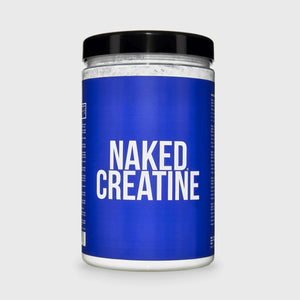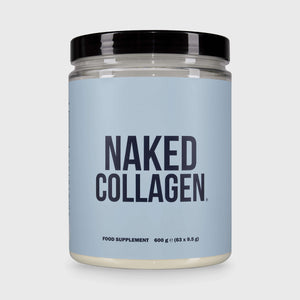The best time to take creatine depends on if you’re exercising or taking a rest day. Studies suggest that creatine close to a workout may be the most beneficial for lean muscle mass and athletic performance.
Key Takeaways about Best Time for Creatine
-
Creatine before a workout can significantly improve muscle strength and performance.
-
Some people choose to take creatine after exercise as it has been shown to facilitate muscle protein synthesis and speed up recovery.
-
It likely doesn’t make much of a difference when you choose to take creatine, or if you split it up into multiple doses.
-
Staying consistent with the daily recommended 3-5 grams of creatine daily – even on off days – is most important to optimize performance and see the best results.
-
Creatine monohydrate powder is the most widely researched and effective form of creatine and it’s best to simply mix it into your favorite beverage.
-
Some people choose to take creatine with carbohydrates or protein to enhance absorption, however, it’s still effective when just taken on its own.
-
It’s helpful to increase your water intake and ensure adequate hydration with creatine to avoid dehydration or side effects.
-
Creatine is very safe and generally well tolerated, however, there are some people that experience mild side effects such as bloating.
Should I Take Creatine Before a Workout?
Creatine is one of the most popular and widely studied supplements, and for good reason, as it has been shown to improve muscle mass, strength, and performance during workouts.
However, there is some debate over the best time to take creatine to best reap its benefits.
While there is no one-size-fits-all answer, it’s evident that taking creatine before a workout can be quite beneficial for some people.
A recent study from the Journal of the International Society of Sports Nutrition found that people who supplemented with creatine before a workout experienced greater muscle strength improvements compared to those who took creatine after a workout.
This study is one of many that suggests the benefits of taking creatine before a workout to optimize strength and performance (1).
While some research supports taking creatine before exercise, there is other research that reports no difference between taking creatine before or after exercise (2).
How Long Before a Workout Should I Take Creatine?
If an individual chooses to consume creatine before their workout, it’s best to take it within 30 minutes of exercise for the best results.
It’s important to also note that individual responses to specific creatine timing may vary. Some people may notice the best effects when taking creatine prior to exercise, while others may notice the opposite.
Or, Should I Take Creatine After a Workout?

While some may choose to take creatine before a workout, others like to take creatine post workout, and there is research to support this, too.
When people take creatine after exercise it helps to replenish the creatine stores in the muscles that may have been depleted during the workout. Creatine specifically can stimulate muscle protein synthesis, which is the process of building new tissue (muscle mass).
Plus, giving the body creatine after working out may help facilitate a quicker recovery, and therefore improved performance in subsequent workouts.
Some research suggests that post-workout supplementation is the most effective (3). However, other studies show that people who take creatine after exercise have similar improvements in strength and performance compared to those who take it beforehand.
Ultimately, individual responses to the timing of creatine supplementation may vary, so there is likely not one best approach.
Is it Better to Split Creatine Intake Throughout the Day?
Another consideration is whether splitting creatine intake throughout the day is more beneficial than taking it all at once – either before or after a workout.
Dividing your creatine supplement dose into multiple servings throughout the day is likely providing you with the same muscle strength-enhancing benefits as taking it all at once.
You may choose to split your creatine dosage in half and take one dose pre workout, and the other afterwards. This method may help optimize performance and recovery, however, there is not significant research to suggest this is more optimal than just taking it in a single dose.
Whether you choose to split your creatine supplement comes down to personal preference and convenience.
For example, you might find that it helps you tolerate more creatine if you break up supplementation throughout the day. This could be especially helpful if you decide to do the creatine loading phase.
Regardless, for the best results, it’s important to stay consistent with your daily creatine intake, regardless of the timing strategy you choose.
What Does Research Say About Creatine Timing?

There have been hundreds of studies investigating the best time to take creatine.
Researchers have concluded that there is no real significant difference in performance or strength when comparing pre or post-workout creatine supplementation. Both approaches have proven to be beneficial for increasing strength and muscle mass (4).
Because individual responses to the timing of creatine supplementation may vary, it’s important to keep in mind that what works best for one person may not be best for another. Everyone should experiment to see what helps them feel their best.
Studies continue to reflect that the total daily creatine intake is more important than the specific timing. People who consistently consume the recommended dose of 3-5 grams per day seem to reap the most benefit, regardless of the timing.
Should I Take Creatine on Rest Days?

All of the best professional and recreational athletes know that rest days are just as important as training days.
It’s necessary to give the body a break so it can recover and reach peak performance during subsequent workouts. Plus, rest is necessary to prevent injury as well.
Many individuals wonder if they should continue taking creatine on rest days or if it is unnecessary.
Taking more creatine on rest days is a good practice as it can help speed along muscle recovery.
Staying consistent with creatine supplementation can help maintain ideal creatine levels in the muscles, and maintain optimal body composition as we tend to naturally lose muscle mass with age.
So yes, taking creatine – even on rest days – maximizes the benefits that creatine offers and can support your fitness goals.
What's the Best Way to Take Creatine?
There are many ways people can take creatine, and it often comes down to personal preference.
However, there are a few things to consider when planning how you will incorporate creatine into your routine.
For one, it’s best to choose powdered creatine monohydrate, which is the most widely available and researched form of creatine. Creatine monohydrate comes most typically in powder form and can be mixed with any beverage such as water, milk, juice, or any drink you like.
Some companies offer creatine in capsule form, which can be a convenient and preferable choice for some.
Regardless of how you choose to consume creatine, it’s important to choose a product from a reputable company that avoids adding any artificial ingredients such as sweeteners, stabilizers, or preservatives.
Naked Creatine is a high-quality creatine monohydrate supplement that consists of just pure creatine without any added ingredients.
What to Eat When Taking Creatine?
To optimize the absorption and benefits of creatine, it’s recommended to take it with food.
Some research suggests that taking creatine with carbohydrates is the most effective.
Carbohydrates break down into glucose, which then trigger the release of insulin from the pancreas. Insulin is anabolic, meaning it helps to build up muscle mass by increasing creatine uptake by muscle cells.
Therefore, choosing to mix your creatine supplements with a carbohydrate-rich meal or beverage can help enhance absorption.
Creatine with Whey Protein

For example, you may choose to mix your creatine with a fruit smoothie or juice or have a carbohydrate-rich meal such as oatmeal, a sandwich, or cereal.
Alternatively, some people choose to have creatine with a small amount of protein, like a whey protein shake before a workout, as protein of course can enhance muscle protein synthesis. It’s thought that combining creatine with protein may enhance muscle growth and recovery.
While creatine can be taken with food, it is also very effective when taken on its own.
How Much Water to Drink With Creatine?
When taking creatine, proper hydration is necessary as it helps with absorption. Aim to drink at least 64 to 80 ounces of water daily in addition to the water or fluid you may use to mix with your creatine. It’s often advised that people drink an additional glass of water or two with their creatine dose.
It’s important to stay on top of your hydration when taking creatine because creatine draws water into muscle cells, and therefore can potentially lead people to become dehydrated if they’re not getting enough fluids in.
Remember that everyone’s hydration needs will vary based on body size, activity level, and environmental conditions, so it’s important that everyone pay attention to their body’s signals and aim to stay on top of their hydration status throughout the day.
What if I Experience Side Effects With Creatine?

Creatine is one of the most widely studied and recognized supplements. It’s generally safe and well-tolerated when taken in the recommended amounts.
With that being said, there are sometimes reports of people experiencing some mild side effects such as an upset stomach or water weight gain, or bloating.
If this is the case for you, you can always try tapering down your dose to see if that relieves your symptoms. Or, you can play around with creatine timing. Perhaps you will feel your best if you take creatine after a workout compared to before, or vice versa.
Another consideration, if you’re experiencing unpleasant side effects, is to increase your water intake. Some people experience side effects from creatine related to their hydration status. Try increasing your water intake to see if that helps.
Lastly, you can always check with a Registered Dietitian or healthcare provider to get a personalized approach to your supplementation needs.
Bottom Line
The timing of creatine supplementation can vary based on individual preferences and goals, and ultimately, there is no one best time to take creatine.
While research suggests that both pre-workout and post-workout creatine intake can be effective to support muscle growth and athletic performance, individual responses may differ.
Experimentation and paying attention to your body's feedback are crucial in determining the best timing strategy for your body.
Maintaining a consistent creatine supplementation schedule, following recommended dosages, and ensuring proper hydration are all essential to optimize creatine’s benefits.










